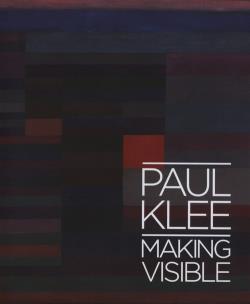- Regulamin
- Koszty dostawy
- Kontakt
- Dziś w ofercie 234 547 produktów
KSIĄŻKI
- Albumy
- Beletrystyka
- Biografie
- Dla dzieci i młodzieży
- Edukacja
- Ekonomia i biznes
- Ezoteryka
- Historia
- Informatyka
- Kalendarze
- Komiksy
- Kryminał i sensacja
- Kultura i sztuka
- Literatura faktu
- Literatura kobieca
- Literatura piękna
- Medycyna
- Nauka języków obcych
- Nauki humanistyczne
- Nauki przyrodnicze
- Nauki ścisłe
- Podręczniki
- Poradniki
- Prawo i administracja
- Przewodniki i podróże
- Psychologia
- Religia
- Sport
- Technika
- Zdrowie i uroda
ZABAWKI
- Artykuły dla niemowląt
- Bączki
- Bujaki i skoczki
- Ciągnij / pchaj
- Dla niemowlaka
- Grzechotki i gryzaki
- Karuzele i pozytywki
- Maty i centra zabaw
- Projektory i lampki
- Sortery i piramidki
- Zabawki
- Edukacyjne i kreatywne
- Figurki
- Klocki
- Lalki
- Pojazdy
- Pluszaki i maskotki
- Sport i rekreacja
- Zabawa w dom
- Zabawki drewniane
- Puzzle
- Do 200 elementów
- 201-500 elementów
- 501-1000 elementów
- Ponad 1000 elementów
- Puzzle 3D
ART. PAP
- Artykuły biurowe
- Artykuły piśmiennicze
- Bloczki i kartki samoprzylepne
- Dziurkacze
- Kalkulatory
- Nożyczki i nożyki
- Skoroszyty
- Teczki
- Wizytowniki
- Zszywacze
- Artykuły szkolne
- Akcesoria szkolne
- Modelowanie
- Notatniki i zeszyty
- Piórniki
- Plecaki i torby
- Pojemniki na śniadanie
- Pomoce naukowe
- Przybory matematyczne
- Przybory rysunkowe
- Upominki i gadżety
- Akcesoria do książek
- Artykuły balowe
- Breloki i zawieszki
- Drobiazgi, różności
- Kubki
- Oferta Świąteczna
- Papeteria, kartki i naklejki
- Skarpetki Many Mornings
- Upominki
GRY
MULTIMEDIA
- Audiobooki
- Beletrystyka
- Biografie i wspomnienia
- Dla dzieci i młodzieży
- Fantastyka
- Filozofia i religia
- Historia
- Literatura faktu i reportaż
- Poradniki
- Sensacja i kryminał
- Filmy DVD/BD
- Animowane
- Biograficzne
- Fantasy
- Horrory
- Komedie
- Romanse
- Science Fiction
- Sensacyjne / kino akcji
- Thrillery
- Muzyka CD
- Alternatywna
- Blues
- Dla dzieci
- Jazz
- Klasyczna
- Piosenka aktorska i poetycka
- Pop
- Rock
- Świąteczna i kolędy
- Akcesoria GSM
- Głośniki
- Kable i adaptery
- Klawiatury
- Myszy
- Słuchawki
PROMOCJE
ZDROWIE
LEGO

Paul Klee: Making Visible
Autor: Gale Matthew
Wydawca:
Thames and Hudson
ISBN:
9780500239155
EAN:
9780500239155
oprawa:
Twarda z obwolutą
format:
24.0x26.0cm
język:
polski
liczba stron:
256
rok wydania:
2013
(0) Sprawdź recenzje
Opis produktu
Zasady bezpieczeństwa
Paul Klee (1879–1940) created some of the most innovative and best-loved works of the twentieth century in etching, drawing, ink, pastel, oil paint, and watercolor. Although he moved freely between media and from figuration to abstraction, Klee’s works remain instantly recognizable, often characterized by a playfulness and wit that can sharpen to biting satire on occasion.
In 1920 Klee was appointed to teach at the Bauhaus, where he remained for ten years as an influential and much-loved figure. In 1933 he returned to Switzerland having been dismissed from his position by the Nazis; his work was included in the infamous Degenerate Art exhibition in 1937 and Klee spent the rest of his life unable to return to the country that had fostered his career.
This retrospective book, which accompanies an exhibition at the Tate Modern, surveys Klee’s entire career, focusing on particular moments in depth and allowing his work to be seen in the context of the times in which he lived. Despite his quirky lyricism, he is revealed as an artist troubled by the challenges of the modern world, far more complex than he may first appear.
CENA:
106,48
zł
Cena detaliczna:
182,52 zł
42%
rabatu
Najniższa cena z ostatnich 30 dni: 106,85 zł
Produkt niedostępny
Uwaga!!!
Ten produkt jest zapowiedzią. Realizacja Twojego zamówienia ulegnie przez to wydłużeniu do czasu premiery tej pozycji. Czy chcesz dodać ten produkt do koszyka?


Wybierz wariant produktu
